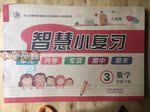题目内容
【题目】China to promote(推进)traditional opera in schools
China’s central government has pledged(保证,发誓)to promote traditional opera in schools.
Primary schools, secondary schools, colleges 【1】universities will give students the opportunity 【2】 (watch) traditional opera free of charge in 2017, according to a guideline jointly 【3】(make) by the publicity department of the Communist Party of China and the ministries of culture, education and finance. By 2018, students in all schools and colleges nationwide can watch【4】single opera free of charge every year.
The campaign for traditional opera to reach students will be common in all schools by 2020, 【5】will make traditional opera popular【6】students, teachers and families. The guideline also urges schools to strengthen the creation of opera interest groups. It once 【7】(call) on the joint(共同的)efforts of the government, education, society and individuals of support the campaign. The guideline also encourages investment(投资)from enterprises, social 【8】(organize) and individuals. There are hundreds of forms of local opera in China, with Peking Opera the most famous. Peking Opera and Kunqu Opera 【9】(list)by UNESCO as an intangible(无形的)【10】(culture)heritage(遗产).
【答案】
【1】and
【2】to watch
【3】made
【4】a
【5】which
【6】with/among
【7】called
【8】organizations
【9】are listed
【10】cultural
【解析】京剧和昆曲被联合国教科文组织列为非物质文化遗产,日前,我国将大力推进传统戏曲进入校园。
【1】此处是并列的主语,故答案为and。
【2】此处是动词不定式做后置定语,答案为to watch。
【3】此处是过去分词做后置定语,故答案为made。
【4】句意:到2018年为止,全国所有学校和学院的学生每年都可以免费看一场歌剧。可知答案为a。
【5】句意:到2020年,传统戏曲进校园活动在所有学校得到普及,这将使传统戏曲深受学生、老师和家庭的欢迎。前面整个句子做先行词,which引导非限制性定语从句。
【6】固定词组:be popular with/among在---中受欢迎,故答案为with/among。
【7】句意:它曾经呼吁政府、学校、社会、个人合力支持戏曲进校园活动。可知句子用一般过去时态,答案为called。
【8】句意:指南还鼓励企业、社会组织和个人的投资。此处是形容词修饰名词,再根据句意可知用名词复数,故答案为organizations。
【9】句意:京剧和昆曲被联合国教科文组织列为非物质文化遗产。根据句意可知句子用一般现在时态的被动语态,故答案为are listed。
【10】句意:京剧和昆曲被联合国教科文组织列为非物质文化遗产。此处是形容词修饰名词,答案为cultural。

 智慧小复习系列答案
智慧小复习系列答案